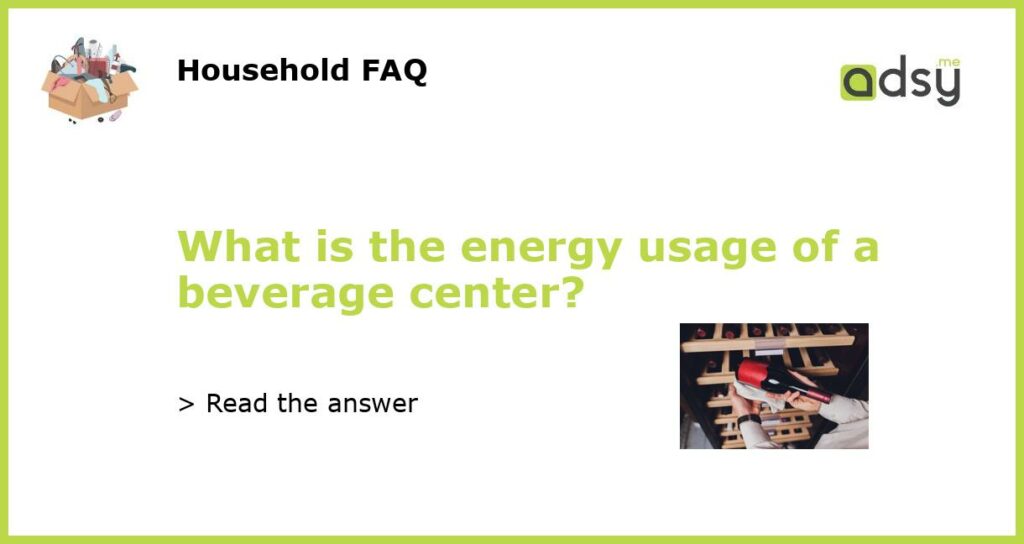Understanding the Energy Usage of Beverage Centers
Beverage centers are increasingly becoming popular for homeowners who want to have a separate space for drinks. They are designed to provide storage for beverages, including wine, beer, soda, and other drinks. If you’re thinking of getting a beverage center, one of the most important factors to consider is energy efficiency. In this article, we’ll examine the energy usage of beverage centers and how to choose an energy-efficient unit.
Energy Usage of Beverage Centers
The energy usage of a beverage center depends on several factors, including the size, model, and features. Generally, a beverage center consumes less energy than a full-sized refrigerator due to its smaller size. The energy usage also varies based on the temperature set, the number of times you open the door, and the location of the beverage center in your home. However, as a rule of thumb, a typical beverage center uses about 335 kWh per year, which is about the same as a small-sized refrigerator.
Choosing an Energy-efficient Beverage Center
To save on energy costs, it’s important to choose an energy-efficient beverage center. Look for a unit that has been certified by Energy Star, which means it meets the strict energy efficiency requirements set by the US Environmental Protection Agency. Energy Star certified beverage centers use about 15% less energy than non-certified models. Also, choose a model that has an auto-defrost feature, efficient LED lighting, and proper insulation to maintain a consistent temperature.
Tips to Reduce Energy Usage
Aside from choosing an energy-efficient beverage center, there are other ways to reduce energy usage and save on energy costs. Keep the door closed as much as possible, and don’t leave it open for extended periods. Make sure the unit is not exposed to direct sunlight or heat sources, such as ovens or heaters. Also, avoid overcrowding the beverage center, as this can affect the airflow and cause the unit to work harder to maintain the desired temperature. Lastly, keep the unit clean and dust-free, as dirty coils and fans can cause the unit to use more energy.
The Bottom Line
Overall, the energy usage of a beverage center depends on several factors, but choosing an energy-efficient model and following energy-saving tips can help you save on energy costs. Before buying a beverage center, make sure to do thorough research and compare different models to find the most energy-efficient unit that fits your needs and budget.






